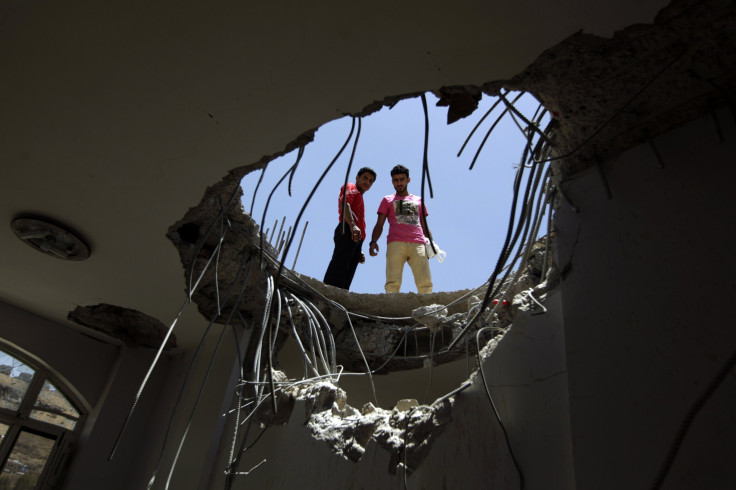Saudi Arabia Announces Five-Day Ceasefire In Yemen

ISTANBUL -- Saudi Arabian Foreign Minister Adel al-Jubeir said Friday a five-day ceasefire would begin in Yemen Tuesday, according to a report by the U.S.-funded Voice of America. The ceasefire agreement requires the Saudi-led coalition to halt its airstrikes and Houthi rebels to stay in their current positions without firing their weapons. The ceasefire was established to allow humanitarian organizations to enter the country and deliver badly needed supplies to civilians.
The announcement came after a meeting between foreign ministers of the Gulf Cooperation Council countries and U.S. Secretary of State John Kerry in Paris. Al-Jubeir and Kerry originally proposed the plan Thursday after a meeting in Riyadh, but said then the ceasefire would be instituted only in the event Iran and the Houthi rebels agree to its terms. It is still unclear whether Iran and the Houthis it supports have agreed to observe the ceasefire announced Friday.
“The security situation on the ground in Yemen has limited the ability of many foreign governments to provide direct assistance to their citizens remaining in Yemen and all on-the-ground consular services for U.S. citizens in Yemen continue to be suspended,” the American State Department said in a statement Thursday.
After the announcement of the original proposal Thursday, Saudi Arabia stepped up its airstrikes, dropping 50 bombs in one night, because the Houthi rebels had not officially agreed to the plan, Saudi and Yemeni officials said.
The Associated Press reported Friday that those airstrikes hit command centers, a land-mine factory and a telecommunications complex. The Saudi-led coalition planes also dropped leaflets in Old Saada in Saada province warning residents to leave the area. Houthi fighters have fired shells from Saada into Saudi Arabia in recent days, killing 10 people.
Humanitarian organizations have for weeks called on both sides to scale back fighting to allow for the delivery of medical supplies, fuel and food to civilians trapped in the beleaguered cities of Aden and Sanaa.
“Aden’s civilians are already in dire straits, without being attacked, detained and held hostage,” said Joe Stork, deputy director of the Middle East and North Africa unit at Human Rights Watch. “Leaders of the Houthis and other forces need to protect civilians, not abuse and terrorize them.”
The Saudi airstrikes have killed possibly hundreds of Houthi rebels since the fighting began in March, but the numbers are unclear. Despite these casualties, the Houthis have been able to hold on to their territorial gains, especially in Aden, through fear tactics, according to human-rights groups.
Human Rights Watch released a report Thursday, claiming Houthi rebels in Aden attacked, detained and shot civilians in the city, and it said the incidents amount to possible war crimes.
According to United Nations estimates, about 650 civilians have been killed and about 300,000 have been displaced in Yemen since the beginning of the fighting March 26. Most of the civilians are still inside the country because there is no easy way to get out. However, some have made their way onto boats and crossed the Gulf of Aden to reach the shores of Djibouti in Africa.
© Copyright IBTimes 2024. All rights reserved.





















